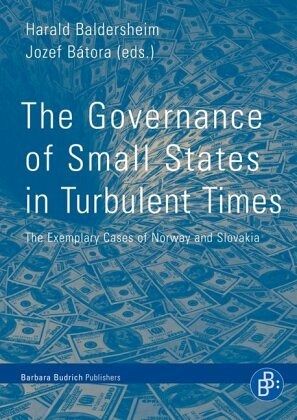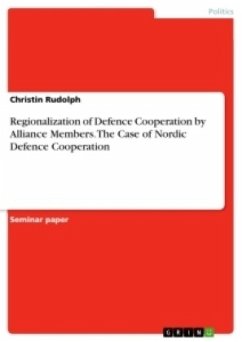
The Governance of Small States in Turbulent Time - The Exemplary Cases of Norway and Slovakia
The Exemplary Cases of Norway and Slovakia
Herausgegeben: Baldersheim, Harald

PAYBACK Punkte
0 °P sammeln!
What is special about small states? How do they adapt their policies and patterns of governance to meet turbulent times such as a new security environment and the international financial crisis? Answers to these and further questions are provided by experts. What are the constraints on and opportunities of governance of small states in an interdependent and increasingly turbulent global setting? How do small states deal with radical changes in the international environment? What is the role of political institutions in facilitating and constraining policy responses to a rapidly changing intern...
What is special about small states? How do they adapt their policies and patterns of governance to meet turbulent times such as a new security environment and the international financial crisis? Answers to these and further questions are provided by experts. What are the constraints on and opportunities of governance of small states in an interdependent and increasingly turbulent global setting? How do small states deal with radical changes in the international environment? What is the role of political institutions in facilitating and constraining policy responses to a rapidly changing international environment? How can political leadership contribute to stability in times of change? This book seeks to answer these questions by taking a comparative perspective on the processes of change and adaptation in the governance of Norway and Slovakia. These two small European states with highly open economies have been exposed to the same set of global turbulences related to post Cold War changes in the security environment and the global financial crisis; they are also facing internal challenges that spring from rapidly rising expectations while demographic shifts put pressure on their welfare systems. Their governance structures and processes are informed by their different political-administrative cultures, different history and levels of stability of democratic governance structures and, indeed, by their different modes of attachment to the European Union and other regional integration frameworks. These differences and a comparative approach in exploring the questions raised above can shed light not only on the specific forms of adaptation of governance structures in two small European states, but also generate insights into the role of integration structures in facilitating and constraining change.
Dieser Artikel kann nur an eine deutsche Lieferadresse ausgeliefert werden.













